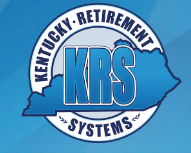We all hope to retire some day with enough income to maintain a modest lifestyle. Maybe you have private investments, have paid into Social Security or have a pension. Whatever your plan for retirement, imagine your concern if that future was threatened.
That’s what city, county and school employees invested in the County Employees Retirement System (CERS) now face. The state’s pension crisis could hurt or destroy their retirement plans, despite the fact they’ve paid into the system every year as required. It’s not a promising picture.
Governor Bevin and members of the legislature are working to draft pension reform for the state. We agree it is needed and admire the governor for taking on what has been a long overdue overhaul. The issue is not all pension systems in Kentucky have suffered the same neglect and not all need the same treatment.

Employers who pay into CERS have always paid what was required, and the state appropriates no money directly to the CERS actuarially required contribution (ARC). Local tax dollars are put into CERS, and CERS employers and employees have always played by the rules. The same cannot be said for the state.
Mismanagement at the Kentucky Retirement Systems (KRS) has led to problems state lawmakers are now struggling to fix. KRS manages the Kentucky Employees Retirement System (KERS), the worst-funded in the nation, and CERS, which is funded at a much higher level. CERS has 73 percent of the assets managed by KRS and 63 percent of the membership. CERS pays 63 percent of KRS administrative expenses, which total a whopping $22 million – a much higher per person cost than other systems in Kentucky that are managed by their own board. Even though a majority of the money in the system belongs to CERS members, they only have six of the 17 seats on the KRS Board of Trustees.
CERS employer and employee groups say it is time to form a CERS Board of Trustees to ensure promises made to employees are kept and local tax dollars are managed properly. A coalition of 25 groups are calling on the legislature to allow CERS to separate from KRS.
Separation would create a new nine-member CERS Board that would be made of three people with 10 or more years of retirement management experience, three people with 10 or more years of investment experience and three people elected to the Board by CERS members. The new board would be free of political appointees, ensuring it is isolated from politics regardless of future administrations.
You may be surprised to learn who is in CERS and how much they earn in retirement. Nonhazardous employees include school bus drivers, school cafeteria workers and public works employees. These nonhazardous employees earn an average of $11,000 a year upon retirement. Hazardous duty employees, who pay more into the system, include your local police officers and firefighters. They earn an average of $25,000 a year after retirement. These are not high-earning positions, and we owe it to the public servants who served our communities to ensure the promises made to them are kept.
We are calling on Governor Bevin and the legislature to include separation in any pension bill that goes before a special session this fall. It is the right thing to do for the CERS employers and employees who played by the rules and put their faith in a Kentucky Retirement Systems that let them down. Let local officials have local control of local tax dollars.
It is time to #freeCERS.
Mayor Daniel Bell, Taylor Mill
Mayor Jude Hehman, Fort Mitchell
Mayor Marty Lenhof, Elsmere
Mayor Joe Meyer, Covington
Mayor Chris Reinersman, Independence
Mayor Dave Hatter, Fort Wright
Mayor Butch Callery, Villa Hills
Mayor Paul Meier, Crestview Hills
Mayor Dave Jansing, Lakeside Park
Mayor Ken Wynn, Ludlow
Mayor Matt Mattone, Park Hills
Mayor Lou Hartfiel, Crescent Springs
Mayor John Link, Edgewood
Mayor Tyson Hermes, Erlanger

















